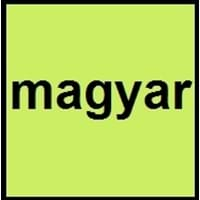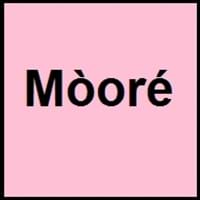Hungarian and Mossi
Countries
European Union, Hungary, Serbia, Vojvodina, Serbia
Burkina Faso
National Language
Austria, Gambia, Hungary, Romania, Serbia, Slovakia, Slovenia, Ukraine
Benin, Burkina Faso, Ghana, Ivory coast, Mali, Togo
Second Language
United States of America
Not spoken in any of the countries
Speaking Continents
Africa, Europe
Asia
Minority Language
Austria, Croatia, Romania, Slovakia, Slovenia, Ukraine
Not spoken in any of the countries
Regulated By
known, Research Institute for Linguistics of the Hungarian Academy of Sciences (Magyar Tudományos Akadémia Nyelvtudományi Intézete)
Not Available
Interesting Facts
- Hungarian language has only preserved most of its ancient elements.
- 'Magyar' is the Hungarian name for the language, the 'Magyar' is also used as an English word to refer to Hungarian people.
- Mossi languages use pitch to distinguish meanings.
- Mossi is the 2nd largest ethnic group in Ivory Coast.
Similar To
Mansi and Khanty Languages
Dagbani Language
Derived From
East and South Slavic Languages
Not Available
Alphabets in
Hungarian-alphabets.jpg#200
Mossi-Alphabets.jpg#200
Writing Direction
Left-To-Right, Horizontal
Not Available
Thank You
köszönöm
Laafi bala
How Are You?
Hogy vagy?
Laafi beme ?
Good Night
Jó Éjszakát
Ne y yungo
Good Evening
jó Estét
ne y zabre
Good Afternoon
Jó Napot Kívánok
Kia ora
Good Morning
jó Reggelt
Ne y yibeogo
Bye
viszlát
Wend na kon-d nindaare
I Love You
Szeretlek
Kei te aroha au ki a koe
Excuse Me
elnézést
Y gafare
Dialect 1
Csángó
Ouapadoupou
Where They Speak
Bacău County, Rumania
Burkina Faso
Dialect 2
Oberwart
Saremde
Where They Speak
Austria
Burkina Faso
Dialect 3
Székely
Taolende
Where They Speak
Székely Land
Burkina Faso
Second Language Speakers
Not Available
Native Name
magyar / magyar nyelv
Mosse
Alternative Names
Magyar
Not Available
French Name
hongrois
moré
German Name
Ungarisch
Mossi-Sprache
Pronunciation
[ˈmɒɟɒr]
Not Available
Ethnicity
Hungarians
Mossi
Origin
1192 AD
Not available
Language Family
Uralic Family
Niger-Congo Family
Subgroup
Finno-Ugric
Western Sudanic
Branch
Ugric
Gur (Voltaic)
Early Forms
Old Hungarian
No early forms
Standard Forms
Modern Hungarian
Mossi
Language Position
Not Available
Signed Forms
Not Available
Not Available
Scope
Individual
Individual
ISO 639 1
hu
No data Available
ISO 639 6
Not Available
Not Available
Glottocode
hung1274
moss1236
Linguasphere
ohu
No data Available
Language Type
Living
Living
Language Linguistic Typology
Subject-Object-Verb
Not Available
Language Morphological Typology
Agglutinative, Synthetic
Not Available
All Hungarian and Mossi Dialects
Most languages have dialects where each dialect differ from other dialect with respect to grammar and vocabulary. Here you will get to know all Hungarian and Mossi dialects. Various dialects of Hungarian and Mossi language differ in their pronunciations and words. Dialects of Hungarian are spoken in different Hungarian Speaking Countries whereas Mossi Dialects are spoken in different Mossi speaking countries. Also the number of people speaking Hungarian vs Mossi Dialects varies from few thousands to many millions. Some of the Hungarian dialects include: Csángó, Oberwart. Mossi dialects include: Ouapadoupou , Saremde. Also learn about dialects in South American Languages and North American Languages.
Hungarian and Mossi Speaking population
Hungarian and Mossi speaking population is one of the factors based on which Hungarian and Mossi languages can be compared. The total count of Hungarian and Mossi Speaking population in percentage is also given. The percentage of people speaking Hungarian language is 0.19 % whereas the percentage of people speaking Mossi language is 0.11 %. When we compare the speaking population of any two languages we get to know which of two languages is more popular. Find more details about how many people speak Hungarian and Mossi on Hungarian vs Mossi where you will get native speakers, speaking population in percentage and native names.
Hungarian and Mossi Language Codes
Hungarian and Mossi language codes are used in those applications where using language names are tedious. Hungarian and Mossi Language Codes include all the international language codes, glottocodes and linguasphere.





